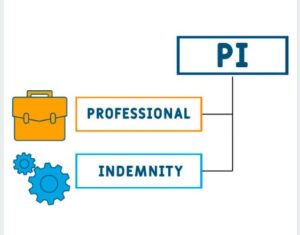How Should an Estate Agent Handle a Client Dispute Over Misrepresentation? Can PI Insurance Cover the Costs?
Misrepresentation in property transactions can lead to serious disputes between estate agents and clients. If a buyer or tenant feels misled, they may take legal action. Handling these disputes correctly is crucial to maintaining a good reputation and avoiding financial losses.
So, How Should an Estate Agent Handle a Client Dispute Over Misrepresentation and respond to such claims? And can professional indemnity (PI) insurance for estate agents cover the costs? Let’s explore.
Understanding Misrepresentation in the Property Market
Misrepresentation occurs when false or misleading information is given about a property. This could be unintentional or deliberate.
There are three main types:
Innocent misrepresentation – The agent provided incorrect information but genuinely believed it was accurate.
Negligent misrepresentation – The agent failed to take reasonable care in verifying the information given.
Fraudulent misrepresentation – The agent knowingly provides false details to influence a sale or rental.
If a client believes they were misled, they may claim compensation or even take legal action. This can be costly, time-consuming, and damaging to an estate agent’s reputation.
How Should an Estate Agent Handle a Client Dispute?
1. Stay Calm and Assess the Complaint

The first step is to listen to the client and understand their concerns. Acknowledge their complaint and avoid dismissing it outright. Gathering all relevant documents, emails, and marketing materials will help clarify whether a mistake has been made.
2. Check the Accuracy of the Information Provided
Review the property listing, brochures, and verbal statements made during the transaction. If an error is found, determine whether it was accidental or due to negligence.
If the misrepresentation was caused by a third party, such as a surveyor or seller, this should also be considered.
3. Attempt to Resolve the Issue Amicably
Clients may seek financial compensation or another form of resolution. If possible, offer a fair solution before the situation escalates. Open and honest communication can prevent further legal complications.
4. Follow the Estate Agency’s Complaints Procedure

Most estate agencies have an internal complaints process. Following this procedure ensures compliance with industry standards and provides a clear record of actions taken.
If the dispute cannot be resolved internally, the client may escalate the complaint to an ombudsman scheme, such as The Property Ombudsman (TPO) or the Property Redress Scheme (PRS).
5. Seek Legal Advice if Necessary
If the client is pursuing legal action, seek professional advice. A solicitor specializing in property law can assess the claim and advise on the best course of action.
Can PI Insurance Cover the Costs of a Misrepresentation Claim?

Professional indemnity (PI) insurance for estate agents can provide financial protection in the event of a claim. This type of insurance covers legal costs, compensation, and damages resulting from errors, omissions, or misleading statements.
What Does PI Insurance Cover?
- Legal fees if a client takes the agent to court.
- Compensation payouts if the client proves financial loss due to misrepresentation.
- Costs of rectifying mistakes before they escalate into legal disputes.
- Defense expenses even if the claim is unfounded.
Having PI insurance is not just a safety net—it is essential for protecting an estate agent’s business from financial strain.
Preventing Future Misrepresentation Claims
While PI insurance provides financial protection, preventing disputes in the first place is always the best approach. Here’s how estate agents can reduce the risk of misrepresentation:
1. Verify All Property Details
Ensure that property descriptions, measurements, and features are accurate. Double-check information provided by sellers or landlords before advertising.
2. Use Clear and Honest Language
Avoid exaggerated claims or ambiguous wording in property listings. If a feature is subject to change, make it clear to potential buyers or tenants.
3. Keep a Record of Communications

Having a written record of discussions with clients can provide evidence if a dispute arises. Email confirmations, signed agreements, and written disclaimers can help protect against claims.
4. Provide Regular Staff Training
Estate agents should receive training on legal obligations, marketing regulations, and ethical sales practices. Understanding the latest industry standards can help prevent costly mistakes.
Conclusion
Misrepresentation claims can be challenging, but estate agents who act professionally and follow the correct procedures can minimize risks. If a dispute arises, addressing it promptly and fairly can prevent legal escalation.
PI insurance plays a crucial role in covering legal costs and compensation. However, the best approach is to focus on accuracy, transparency, and professional integrity to prevent disputes from occurring in the first place.







